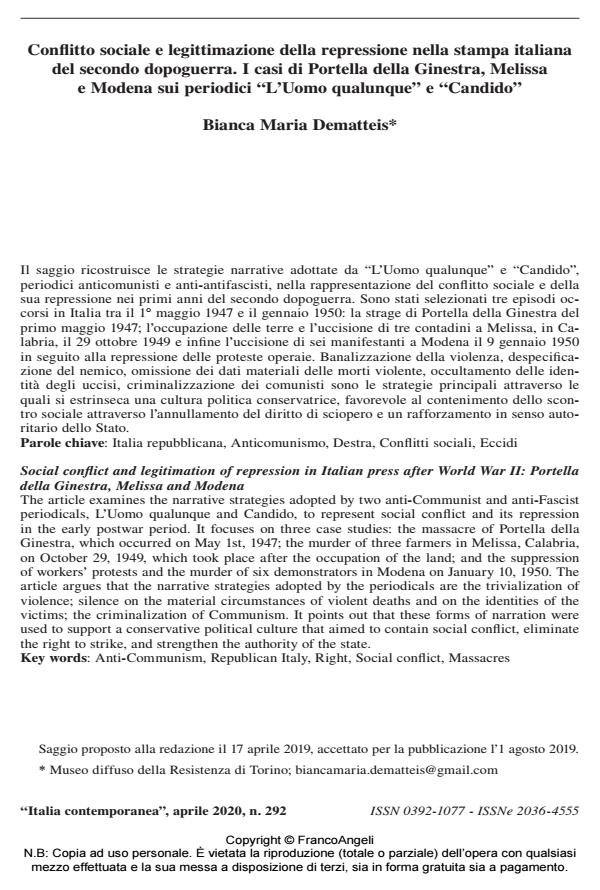Social conflict and legitimation of repression in Italian press after World War II: Portella della Ginestra, Melissa and Modena
Journal title ITALIA CONTEMPORANEA
Author/s Bianca Maria Dematteis
Publishing Year 2020 Issue 2020/292
Language Italian Pages 28 P. 60-87 File size 192 KB
DOI 10.3280/IC2020-292003
DOI is like a bar code for intellectual property: to have more infomation
click here
Below, you can see the article first page
If you want to buy this article in PDF format, you can do it, following the instructions to buy download credits

FrancoAngeli is member of Publishers International Linking Association, Inc (PILA), a not-for-profit association which run the CrossRef service enabling links to and from online scholarly content.
The article examines the narrative strategies adopted by two anti-Communist and anti-Fascistperiodicals, L’Uomo qualunque and Candido, to represent social conflict and its repressionin the early postwar period. It focuses on three case studies: the massacre of Portella dellaGinestra, which occurred on May 1st, 1947; the murder of three farmers in Melissa, Calabria,on October 29, 1949, which took place after the occupation of the land; and the suppressionof workers’ protests and the murder of six demonstrators in Modena on January 10, 1950. Thearticle argues that the narrative strategies adopted by the periodicals are the trivialization ofviolence; silence on the material circumstances of violent deaths and on the identities of thevictims; the criminalization of Communism. It points out that these forms of narration wereused to support a conservative political culture that aimed to contain social conflict, eliminatethe right to strike, and strengthen the authority of the state.
Keywords: Anti-Communism, Republican Italy, Right, Social conflict, Massacres
Bianca Maria Dematteis, Conflitto sociale e legittimazione della repressione nella stampa italiana del secondo dopoguerra. I casi di Portella della Ginestra, Melissa e Modena sui periodici "L’Uomo qualunque" e "Candido" in "ITALIA CONTEMPORANEA" 292/2020, pp 60-87, DOI: 10.3280/IC2020-292003